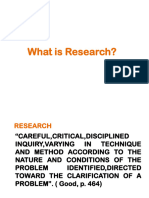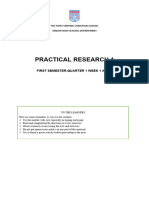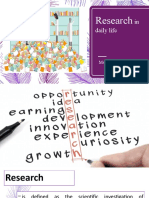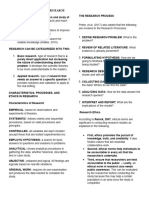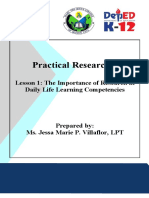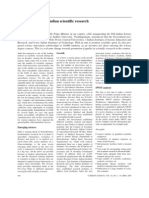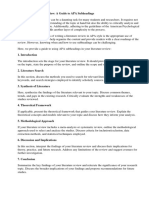0% found this document useful (0 votes)
12 views3 pagesResearch Notes
Research is a systematic investigation aimed at discovering new knowledge or advancing existing theories. It is essential for gathering information, improving living standards, and promoting ethical practices in research. The research process involves several phases, including idea generation, problem definition, data collection, and analysis, culminating in the communication of findings.
Uploaded by
Jorvin MendozaCopyright
© © All Rights Reserved
We take content rights seriously. If you suspect this is your content, claim it here.
Available Formats
Download as DOCX, PDF, TXT or read online on Scribd
0% found this document useful (0 votes)
12 views3 pagesResearch Notes
Research is a systematic investigation aimed at discovering new knowledge or advancing existing theories. It is essential for gathering information, improving living standards, and promoting ethical practices in research. The research process involves several phases, including idea generation, problem definition, data collection, and analysis, culminating in the communication of findings.
Uploaded by
Jorvin MendozaCopyright
© © All Rights Reserved
We take content rights seriously. If you suspect this is your content, claim it here.
Available Formats
Download as DOCX, PDF, TXT or read online on Scribd
/ 3



































